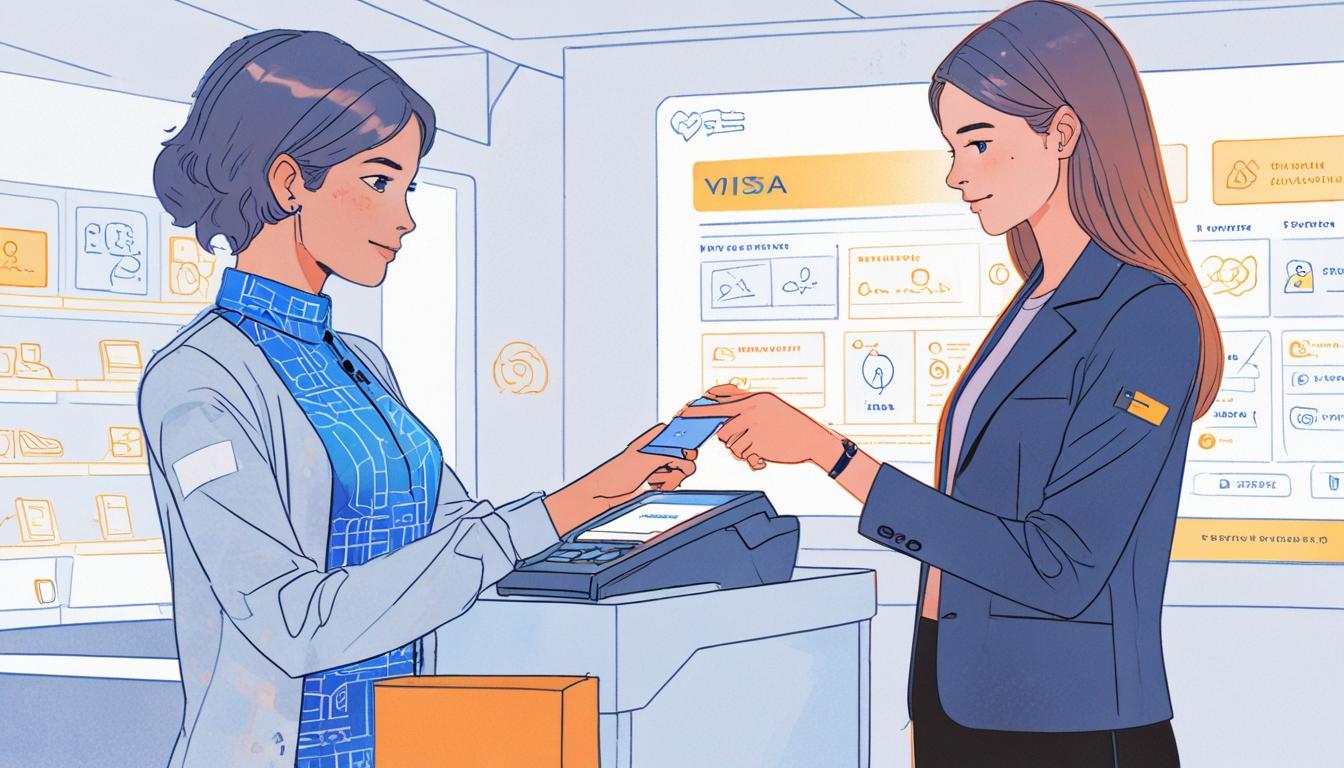Visa is preparing to revolutionise the role of artificial intelligence (AI) in everyday commerce by integrating its payments network with advanced AI "agents" developed by leading tech firms. These AI agents are designed to go beyond traditional chatbots by acting as personal assistants that can carry out actual shopping tasks, such as buying groceries, booking airline tickets, or finding clothing, based on the user's budget and preferences.
Visa announced on Wednesday that it is partnering with several prominent AI developers — including Anthropic, Microsoft, OpenAI, Perplexity in the US, and French company Mistral — to connect their AI systems directly to Visa’s payment infrastructure. Additionally, Visa is collaborating with IBM, online payments company Stripe, and Samsung as part of this initiative. Pilot projects launched this week, with broader deployment expected in 2024.
Jack Forestell, Visa’s chief product and strategy officer, described the development as potentially "transformational, on the order of magnitude of the advent of e-commerce itself." Speaking in an interview, Forestell emphasised that despite the industry's excitement about AI personal assistants, existing AI agents struggle to handle the payments component of transactions. Many current AI systems can research and recommend products but ultimately leave the payment process for the consumer to complete manually.
“Early incarnations of agent-based commerce are doing a really good job on shopping and discovery but have tremendous trouble on payments,” Forestell explained. “The payments problem is not something the AI platforms can solve by themselves. That’s why we started working with them.”
Visa’s goal is to make the payment process seamless and trustworthy so that AI agents can autonomously complete purchases, thereby making routine shopping tasks easier and more efficient. This integration requires robust security and authentication processes, similar to digital payment systems like Apple Pay, to ensure that transactions are legitimate and that disputes can be managed effectively by Visa. Forestell highlighted that cautious spending limits and user controls will remain central to the system, allowing consumers to set budgets and conditions for their AI agents.
Forestell illustrated this with examples: while some consumers may prefer an AI to take full control for specific errands—like buying groceries, home improvement supplies, or managing Christmas lists—others might still want to be involved in more immersive shopping experiences, such as buying luxury goods. AI agents would then provide assistance while staying in the background.
The introduction of such AI-enabled commerce could have implications for financial management, especially given the high levels of credit card debt in the US, which totalled $1.21 trillion at the end of 2023 according to the Federal Reserve Bank of New York. Forestell reassured that consumers will retain control by setting clear spending limits and conditions for their AI agents. He said agents may start by seeking approval for each purchase but could gradually handle larger expenses autonomously, for example, authorising up to $1,500 for an airline ticket.
Another advantage Visa brings to the partnership is the ability for AI developers, with user consent, to access anonymised transaction histories. “Visa has the ability for a user to consent to share streams of their transaction history with us,” said Dmitry Shevelenko, chief business officer at Perplexity, one of the participating AI firms. “When we generate a recommendation — say, ‘What are the best laptops?’ — we would know what other transactions you’ve made and your revealed preferences.”
Perplexity’s AI chatbot is already capable of booking hotels and making purchases, although AI-driven commerce remains at an early stage. The San Francisco startup and OpenAI, makers of the ChatGPT model, have also signalled their broader ambitions in the tech sector, highlighting potential moves in ongoing antitrust proceedings involving Google.
Visa’s initiative arrives at a time of significant transition in digital payments, following major changes the company announced last year that aim to reduce reliance on physical credit and debit cards in favour of digital credentials for authorisation. Their collaboration with AI firms represents a critical step toward enabling AI agents to conduct financial transactions securely and conveniently on behalf of consumers.
The Virginian-Pilot is reporting on this development in the context of the broader trends in AI and digital commerce, noting that while agentic AI has demonstrated promise, widespread real-world use is just beginning to take shape. Visa’s backing could significantly influence the competitive landscape, potentially helping emerging AI companies challenge established e-commerce giants like Amazon and Google, who are also developing AI-powered shopping assistants.
Source: Noah Wire Services
